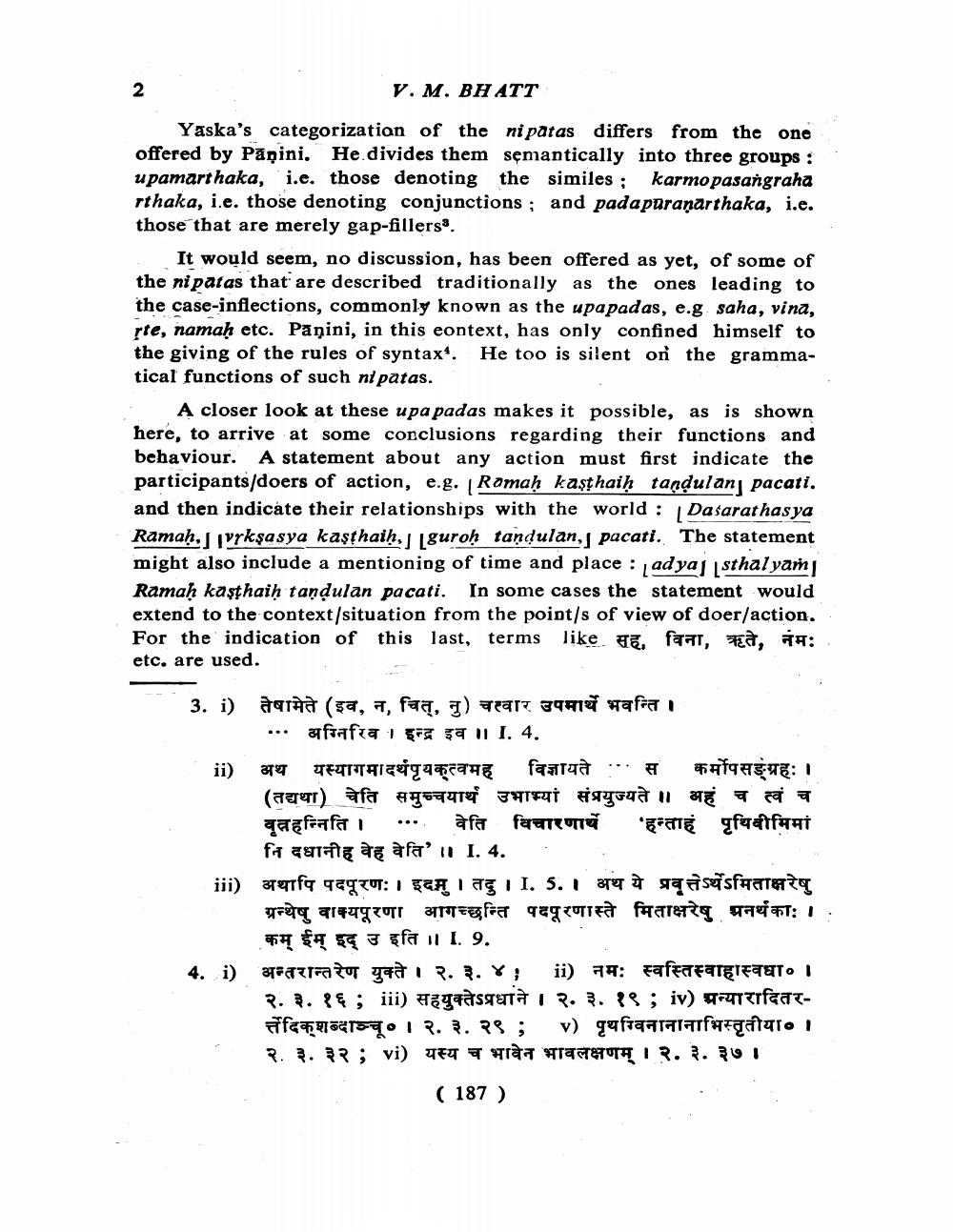________________
2
V. M. BHATT
Yaska's categorization of the nipatas differs from the one offered by Panini. He divides them semantically into three groups : upamarthaka, i.e. those denoting the similes; karmo pasangraha rthaka, ie those denoting conjunctions and padaparaparthaka, i.e. those that are merely gap-fillers".
It would seem, no discussion, has been offered as yet, of some of the niparas that are described traditionally as the ones leading to the case-inflections, commonly known as the upapadas, e.g saha, vina, xte, namah etc. Panini, in this eontext, has only confined himself to the giving of the rules of syntax1. He too is silent on the grammatical functions of such nipatas.
A closer look at these upa padas makes it possible, as is shown here, to arrive at some conclusions regarding their functions and behaviour. A statement about any action must first indicate the participants / doers of action, cg. [Ramah kasthath tandulanj pacati. and then indicate their relationships with the world: Dasarathasya Ramah.] [vrksasya kasthath.] [guroh tandulanj pacati. The statement might also include a mentioning of time and place: adyaj [sthalyam Ramaḥ kasthaih tandulan pacati. In some cases the statement would extend to the context/situation from the point/s of view of doer/action. For the indication of this last, terms like सह विना, ऋते नमः etc. are used.
3) तेषामेते (इव, न चित् नु) चत्वार उपमार्थे भवन्ति । अग्निरिव । इन्द्र इव ॥ I. 4.
...
ii)
अथ यस्यागमादर्थं पृयकृत्यमह विज्ञायते ... स कर्मोपसंग्रहः । (तद्यथा) चेति समुच्चयार्थ उभाभ्यां संप्रयुज्यते ॥ अहं च त्वं च बृहन्निति । वेति विचारणार्थे हन्ताहं पृथिवीमिमां नि दधानीह वेह वेति ॥ I. 4.
iii) अथापि पदपूरणः । इदम् । तदु । I. 5. । अथ ये प्रवृत्तेऽर्थेऽमिताक्षरेषु ग्रन्थेषु वाक्यपूरणा आगच्छन्ति पदपूरणास्ते मिताक्षरेषु धनर्थकाः । कम् ईम् इद् उ इति ॥ 19.
4. i)
अन्तरान्तरेण युक्ते । २.३.४ । ii) नमः स्वस्तिस्वाहा स्वधा । २.३.१६ iii) सहयुक्तेऽप्रधाने । २. ३. १९; iv) धन्यारादितरदिशा० । २.१.२९ ; v) पृथग्विनानानाभिस्तृतीया । २. ३.३२; vi) यस्य च भावेन भावलक्षणम् । २. ३. ३७ ॥
(187)




